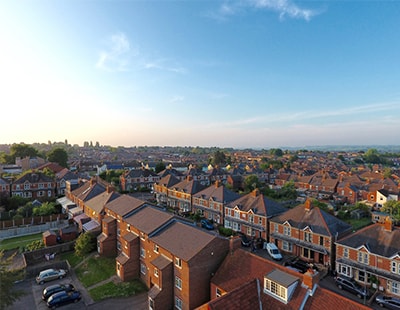
One of the country’s leading experts on the housing market says first time buyers are still hampered from purchasing homes despite a raft of measures to help them.
Jeremy Leaf, the former RICS residential chairman who runs his own agency in north London, blames lenders and deposits for the situation.
“Recent tax and regulatory changes have meant that the playing field between buy to let investors and first time buyers is levelling but to date, lending criteria and deposit-raising difficulties are preventing many first-time buyers taking their place in sufficient numbers to make a real difference, despite stamp duty abolition” he says.
Leaf was responding to the latest house price data from the Nationwide, which shows annual property inflation slowing to 2.4 per cent last month - a rate which on paper looks likely to encourage more buyers.
He says that in the market he is seeing more interest in an increased number of properties coming onto the market - as expected at the start of summer - but he cautions that “[it’s] still hard to generate commitment from buyers and transactions agreed are taking longer to finalise.” He adds that those properties priced most realistically are those selling most rapidly.
The full report from the Nationwide shows that annual house price growth slowed to 2.4 per cent in the UK in May with further increases this year likely to be limited to a meagre one per cent.
This was down slightly from the 2.6 per cent annual growth recorded in April and month on month prices fell by 0.2 per cent; the average price of a UK home is now £213,618.
Nationwide chief economist Robert Gardner says annual house price growth has been confined to between 2.0 per cent and 3.0 per cent over the past 12 months anyway, suggesting little change in the balance between demand and supply in the market over that period.
“There are few signs of an imminent change. Surveyors continue to report subdued levels of new buyer enquiries, while the supply of properties on the market remains more of a trickle than a torrent” he says.
Gardner believes that lacklustre activity in the wider economy and continuing pressure on household budgets would drag on the housing market throughout 2018.
“Looking further ahead, much will depend on how broader economic conditions evolve, especially in the labour market, but also with respect to interest rates. Overall, we continue to expect house prices to rise by around 1.0 per cent over the course of 2018” he concludes.


























Join the conversation
Be the first to comment (please use the comment box below)
Please login to comment